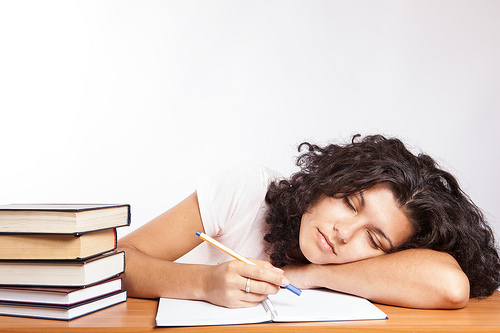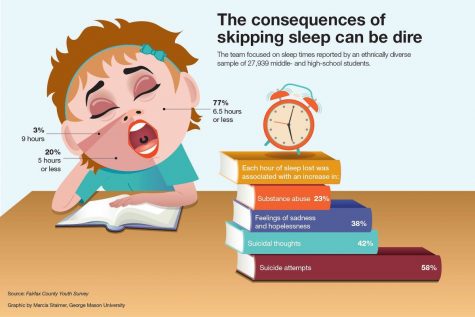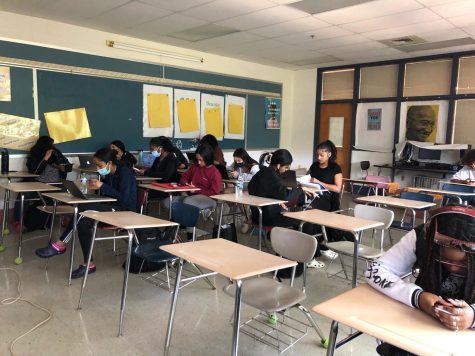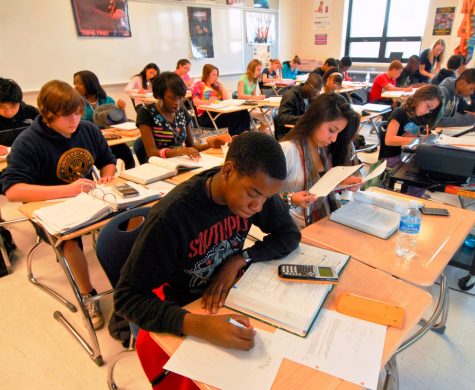Sleep deprivation is impacting students

photo by Calico Spanish
Have you ever felt low on energy, or like you needed some more rest? Or perhaps, you may have felt like a zombie on The Walking Dead as you make your way through the halls in the morning. If so, you may be experiencing sleep deprivation. The National Sleep Association defines sleep deprivation as “not obtaining adequate or total sleep.” Getting enough sleep is imperative to the development and growth of teenagers, as well as achieving optimal school performance. “But, my Calc test is more important than a few hours.” some students might say. This is a common misconception that students under the pressure of multiple AP and IB Classes maintain. Is sacrificing sleep to study for a few extra hours really worth it?
According to the National Institutes of Health, teenagers should be receiving 8-10 hours of sleep a day. Many students today are giving up precious hours of rest to prepare for tests and quizzes. Some teachers and adults may fault these students for their poor time management and not studying earlier, but with sports, extracurricular activities, and the pressure that comes with being a teenager in this day and age, sleep is priority two.
photo by George Mason University
Many claim, however, that they feel fine even after only sleeping for a few hours. Of course, there are always some people who don’t need as much sleep as others, but this group of people is a small minority. Short sleepers are able to sleep around 4-6 hours and have the same energy as those who sleep for 7-8 hours.
On the other hand, most people aren’t as lucky. Researchers from UCSF have found that those who sleep for less than the recommended 7-8 hours are more prone to “chronic conditions like cardiovascular disease, obesity, depression, diabetes and even dementia.”
And those who sleep over the recommended amount of rest are prone to the same number of diseases and ailments. That is why it is so important that students must get the right amount of rest to ensure the longevity and development of their bodies.
Some people have a hard time falling asleep and to stay asleep. Some tips are quite simple and can easily help you.
1. Make your bed a place of rest. Don’t watch TV, study, or worry in your bed.
2. Cool your room. Melatonin is the sleep enzyme is what is produced that causes you to sleep. Naturally melatonin drops your internal temperature. To help the process of getting enough sleep, it’s best to lower your room temperature to a cool, but not extreme climate.
3. Get up and do something. If you find yourself struggling to fall asleep, try assigning your brain and body a task to accomplish. By getting up to do some sort of brain stimulating activity, you exhaust your brain power which in turn drives you to naturally want to rest.
Sleep is a crucial aspect for the survival of humans. The average human spends approximately 24 years of their lifespan sleeping. That is a lot of time! It’s also important to mental health. More sleep results in a better version of you in the morning. Take a conscious effort to get to bed early and to have quality rest.











